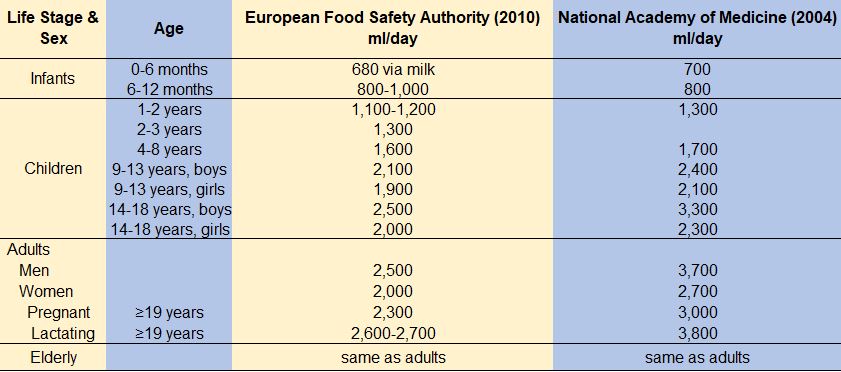How Much Water Should I Drink a Day?
How Much Water Should I Drink a Day?

Water is essential for life. You can live for weeks without eating but only a few days without drinking. Yet, most people are not aware of the existing daily recommendations for water consumption.
As you research to determine how much water is appropriate for you to drink every day, IBWA wants to help by providing the scientific resources that will make that process a little easier for you.
Let’s start by acknowledging that global recommendations on water intake vary between health authorities. In addition, how much water you should drink a day varies. That’s because your body is constantly balancing water losses and water gains depending on several factors, such as how much water you’ve lost through sweat, respiration, fecal losses, and urine—and how much water you’ve gained from metabolic reactions, food, and fluids. The amount of water you need to consume each day also depends on your gender, age, weight, height, physical activity level, the country you live in, and the other foods/liquids you consume.
The National Academy of Medicine (NAM, formerly the Institute of Medicine) and the European Food Safety Authority (EFSA) have published total water intake guidelines, and we present them side-by-side below so that you can compare their recommendations and decide for yourself how much water you should drink. Remember: The NAM and EFSA guidelines below are for total water intake, in milliliters per day, which includes plain water, beverages, and water from the foods you eat.
Total Water Intake Guidelines

Hydration Calculator
Hydration For Health offers an online hydration calculator based on a meticulous methodology. If you’d like to determine if you are drinking enough water, provide your information, and the Hydration For Health calculator will work out your hydration status and let you know if you need to consume more water.
You can also use this urine color chart, created by Lawrence E. Armstrong, PhD, to assess how hydrated you are—and determine if you need to drink more water.





